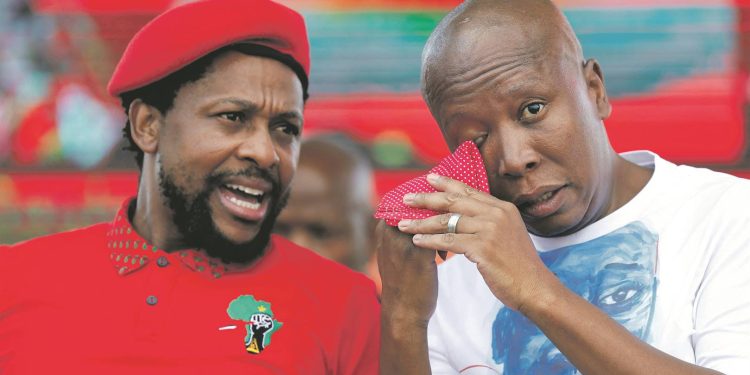Economic Freedom Fighters (EFF) leader Julius Malema has stirred debate after addressing Patriotic Alliance (PA) leader Gayton McKenzie’s past incarceration, suggesting that McKenzie’s public persona might conceal lingering emotional scars from his time in prison. Speaking during a public engagement on Wednesday, Malema emphasized the lasting psychological impacts of imprisonment, hinting that McKenzie’s self-proclaimed resilience might not tell the full story.
“Prison has its own traumas,”** Malema said. **”If you look at Gayton and watch podcasts where ex-prisoners share their experiences, they all speak about the horrors. There is no way this one survived those things.”
McKenzie, who served time in the 1990s for his role in a robbery, has built his public image around his transformation from a convicted criminal to a successful entrepreneur and politician. He often uses his life story as an example of redemption, showcasing his rise from adversity to inspire others.
Malema, however, expressed skepticism about McKenzie’s claims of having fully overcome the psychological effects of incarceration. **”Gayton pretends to be happy, but we know the pain prison leaves. You can’t just shake it off,”** Malema asserted.
McKenzie quickly dismissed Malema’s remarks, accusing him of political opportunism. In a statement, he responded:
“Julius is desperate for attention. My story is not just about pain—it’s about triumph and inspiring others to do better.”
The comments have sparked mixed reactions. Some view Malema’s remarks as a personal attack that undermines McKenzie’s efforts to inspire others. Others interpret them as a critique of how unresolved trauma can influence leadership and decision-making.
Mental health professionals agree that the psychological scars of imprisonment often linger, even for those who seem to have successfully reintegrated into society.
“Prison environments are harsh and dehumanizing. While some individuals cope and thrive post-incarceration, others carry hidden scars, including post-traumatic stress disorder (PTSD),” said Dr. Lindi Masondo, a clinical psychologist.
Dr. Masondo added that acknowledging these experiences can be therapeutic and foster deeper connections with others.
Malema concluded his critique by encouraging McKenzie to embrace the darker aspects of his journey. **”We’re not saying he’s not strong, but strength also comes from admitting the truth,”** he said, adding that doing so could lead to a more relatable and authentic form of leadership.
As the rivalry between Malema and McKenzie escalates, the debate over McKenzie’s past and its influence on his leadership style has become a focal point. Supporters and critics alike will watch closely to see how McKenzie navigates this scrutiny, particularly in light of Malema’s challenge to confront the realities of his prison experience.






















